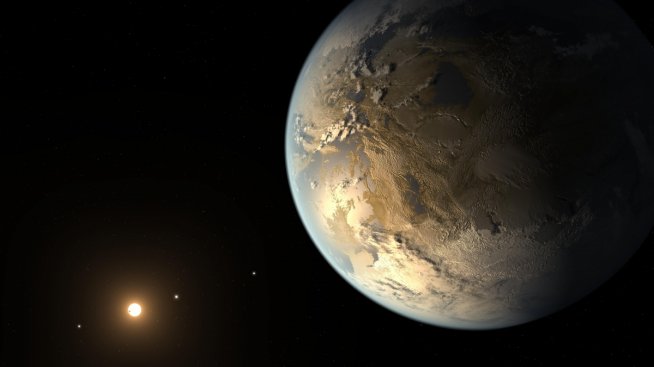
European Southern Observatory's High Accuracy Radial velocity Planet Searcher (HARPS) astronomers at the La Silla Observatory in Chile discovered that the red dwarf star Ross 128 is orbited by an 'exoplanet' every 9.9 days. This newly discovered exoplanet Ross 128b bears living conditions similar to the Earth.
The star was named after the Californian astronomer Frank Elmore Ross who discovered it. The star is believed to possess a surface temperature closer to Earth. Ross 128 is the closest star to Earth to host an exoplanet with such favourable living conditions.
Nicola Astudillo-Defru, from the University of Geneva in Switzerland, the study co-author told DailyMail that only HARPS can be considered as the best planet hunter in the last 15 years. Red stars are however the most common stars in the universe.
As per the data presented by HARPS, it has been found that Ross 128b orbits 20 times closer than the Earth orbits the sun. It is therefore placed in the 'Goldilock's zone', where it gets the appropriate amount of sunlight making it suitable for human life. It receives 1.38 times more irradiation than the Earth. It is being further studied that whether the planet is suitable for hosting alien life or not.
The equilibrium temperature of the planet is estimated to be between -60 and 20°C. Scientists involved in the discovery of Ross 128b claims it to be a temperate planet. However, whether the planet lies inside, outside or in a habitable zone where water exists is still being examined.
Lead author Xavier Bonfils, of Université Grenoble in France, states the HARPS programme to be 'the shortcut to happiness' as cooler planets can be easily detected around these stars than around stars which are similar to the Sun.
"There wasn't a 'eureka' moment here where we were able to suddenly say, wow, we have a planet. We accumulated data over many years, and only gradually the signal built up and became significant," he told National Geographic.
Ross 128 is a much quieter star and lies 11 light years away from the Earth. It is gradually moving towards the blue planet and might be the closest neighbour in just 79,000 years.
Astronomers are trying to detect more temperate exoplanets, the detection of which might be the next big thing. Proxima Centauri although is moving towards us, will gradually move away.
John Mason, press officer for the British Astronomical Association told DailyMail that it might be the second nearest exoplanet to the Earth and might turn out to be more hospitable to life.
"This red dwarf, Ross 128 appears to be more stable, and less prone to sending out the big flares that would destroy life. It's a much nicer neighbourhood to grow up in you could say," he further added.









